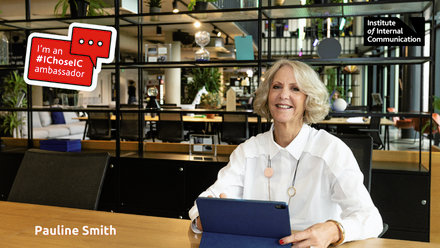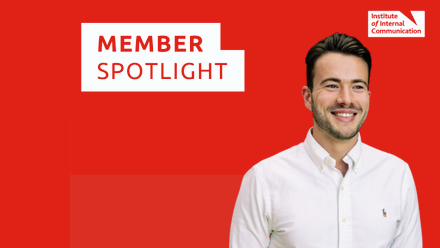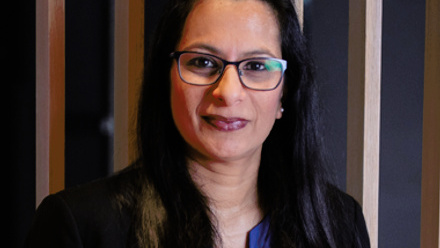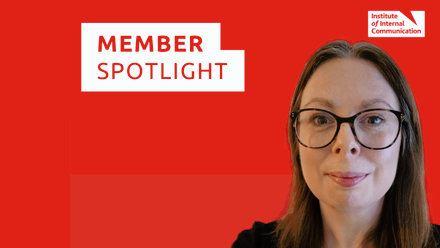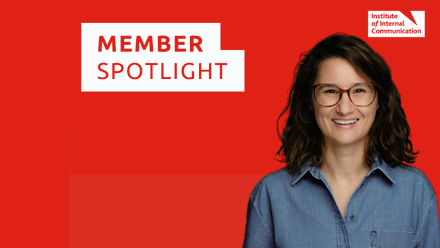How did you end up working in internal comms?
I have always been a “words” person. At school, in my native Romania, I excelled in writing, literature and languages. Nobody was surprised when I chose to study journalism and PR at university. I began working as a radio journalist and news editor at the English section of Romania’s equivalent of the BBC, and then I specialised in radio at the BBC World Service Radio Journalism School.
I moved to the UK and entered the banking sector, eventually making my way back into the world of communication when I landed my first internal comms role in 2010. I was responsible for delivering change communications to branches during the UK’s biggest financial services integration, following Lloyds Bank’s acquisition of HBoS plc.
I have progressed through various IC roles in the company since, and I’m currently the comms and engagement lead for a department of around 500 employees.
Why did you choose to pursue a Fellowship?
I’ve been a member of IoIC for a few years, and I finally felt that I had the experience and knowledge to apply for a Fellowship. As a Fellow, I’m able to share that experience with other communicators to help them. Also, the recognition that the Fellowship provides enables me to advance my career as it’s a respected credential.
On a personal level, it gives me great pride and professional satisfaction. In fact, I felt a lot prouder of receiving my Fellowship than of any other professional recognition I’ve received – even my BBC Diploma.
What valuable lessons have you learnt over the course of your career in internal comms?
I’ve learnt quite a few, but the three most important are:
Communicators don’t only inform, they also educate. Words count. We have to be extremely mindful of how we use them. This also applies to my pet hate – bad grammar or spelling. If people see incorrect spelling in our communications, they are likely to assume it’s correct. They trust that, of all people, we’d be the ones who know good spelling, grammar and style.
Communicators need to be well-versed in neuroscience and the psychology of comms. To design effective comms strategies and plans, you have to know how to win hearts and minds – how to make your comms achieve the desired effect. The IC professional is a bit of a magician, with the ability to put on multiple “hats” at once and pull a rabbit out of them every time – sometimes at very short notice.
You have to be a people person. One of the most important traits of a successful communicator is emotional intelligence. In a previous edition of Voice, my team and I were profiled in an interview about how we used personality tests to help us work better together and allocate work to the most suitable person.
What advice would you give to internal communicators who are at the beginning of their career?
Apart from the three lessons above… love what you do. Unless you love it, you’ll never be able to do it well, no matter how many skills you learn or how many courses you go on. And speaking of learning – never stop! It may be a cliché, but it’s a true one nonetheless.
In my career, I’ve had to stay relevant – and that meant learning a lot, all the time. I’ve even had to unlearn some things. I’ve had to change my mindset and learn things I never thought I’d need as a communicator. Right now, I’m learning more about data and analytics, new digital channels and the Google Cloud platform!

